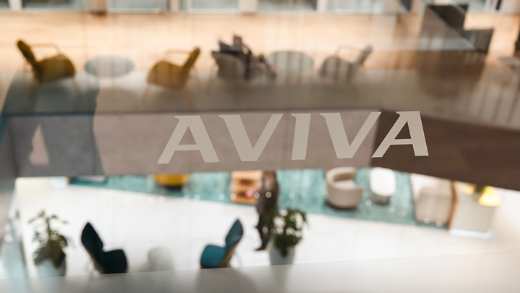Today we’re proud to announce that, along with Standard Life Aberdeen, we’ve become the first accredited Living Hours employers.
Since April 2014 we’ve been a Living Wage employer, paying our employees the real Living Wage – currently £9.30 in the UK or £10.75 in London. This new accreditation means we will also provide them with a guaranteed and stable minimum number of working hours each week.
The Living Hours programme sets a new standard for employers seeking to go beyond the Living Wage in their commitment to decent work. As an accredited employer, we’ve committed to providing at least four weeks’ notice for every shift, with guaranteed payment if shifts are cancelled within this notice period. We’ll also provide a guaranteed minimum of 16 working hours every week (unless the worker requests otherwise), and a contract that accurately reflects hours worked.
These Living Hours accreditations come amid strong public support for such measures during the pandemic. New polling conducted for the Living Wage Foundation shows that 84% of adults think that businesses should be required to offer guaranteed, regular shift patterns or number and frequency of working hours.
The new Living Hours standard reflects the fact that since the Living Wage campaign began in 2001, the shape of low-paid work has changed. There has been a well-documented rise in insecurity, with over 5 million workers in low-paid and insecure work on the eve of the pandemic. Since the pandemic began insecure work has become more prevalent among both key workers, who have kept the economy going, and low-paid service workers whose jobs have been most disrupted by lockdowns.
It’s time to put an end to insecure working contracts with unpredictable hours. Now more than ever, with so many facing uncertainty, being unable to rely on a steady income - even in the short term - is adding to the stress people are experiencing. Living Hours play a crucial role in providing people with financial security, clarity and certainty.
Laura Gardiner, Director of the Living Wage Foundation, said: “This is a challenging time and the pandemic has affected all of our lives and livelihoods in some way. It has also shone a light on the importance of providing workers and families with stability and security, particularly those essential workers like cleaners, caterers and security staff that we have relied upon to keep our economy going.
We’re delighted that Aviva and Standard Life Aberdeen have accredited as our first Living Hours Employers.
“It’s therefore no surprise that there is strong public support for requirements to provide stable and guaranteed minimum hours. Committing to Living Hours represents businesses helping to lead us through and out of this crisis by strengthening their commitment to decent work.”
About Living Hours
The campaign for a real Living Wage has ensured hundreds of thousands of workers are earning a wage they can live on, not just the government minimum. But millions of low paid workers are also struggling to get the hours they need to make ends meet. That’s why the Living Wage Foundation has developed a new standard of what good looks like for those employers that can offer ‘Living Hours’ alongside a real Living Wage.
Living Hours is a new standard that sets out what good looks like. It calls on employers to provide the right to:
- Decent notice periods for shifts: of at least 4 weeks’ notice, with guaranteed payment if shifts are cancelled within this notice period.
- A right to a contract with living hours: the right to a contract that reflects accurate hours worked, and a guaranteed minimum of 16 hours a week (unless the worker requests otherwise).
What is the real Living Wage?
The real Living Wage is an hourly rate of pay set independently and updated annually (not the UK government’s National Living Wage). It is calculated according to the basic cost of living in the UK, and employers choose to pay the Living Wage on a voluntary basis. According to the Living Wage Foundation, since 2001 the campaign has impacted over 200,000 employees and delivered over £1bn extra to some of the lowest paid workers in the UK.
How is the real Living Wage different from the government’s National Living Wage?
In April 2016 the government introduced a higher minimum wage rate for all staff over 25 years of age inspired by the Living Wage campaign, calling it the ‘National Living Wage’. The government's 'National Living Wage' is not calculated according to what employees and their families need to live. That's why the Living Wage movement campaigns for all employers that can afford to do so to ensure their employees earn a wage that meets the cost of living, not just the government minimum.
About the Living Wage Foundation
The Living Wage Foundation is the institution at the heart of the independent movement of businesses, organisations and people who believe that a hard day’s work should mean a fair day’s pay. We recognise and celebrate the leadership shown by the 6,000 Living Wage Employers across the UK who voluntarily commit to ensure their staff earn a real Living Wage that meets the cost of living. We are an initiative of Citizens UK.
Only the real Living Wage is calculated according to the basic cost of living in the UK and in London. Employers choose to pay this wage on a voluntary basis. The real Living Wage applies to all workers over 18 – in recognition that young people face the same living costs as everyone else. It enjoys cross party support.
The UK Living Wage for outside of London from Monday 11th November is £9.30 per hour. The London Living Wage is £10.75 per hour. These figures are calculated annually by the Resolution Foundation and overseen by the Living Wage Commission, based on the best available evidence on living standards in the UK and in London.
You might also be interested in these two short films on YouTube:
Aviva is proud to pay the real Living Wage.
Why does Aviva pay the Living Wage? Lynne's story.
Polling work was conducted by Survation with fieldwork undertaken between 8 – 12 October, 2020. Total sample size was 2,300 adults aged 18+ and resident in the UK. The survey was conducted online.
-ENDS-
Heleana Greeves
Group Financial and Corporate Communications
-
Phone
-
+44 (0) 7392 138 791
-
-
Email
Notes to editors:
- We are the UK's leading diversified insurer and we operate in the UK, Ireland and Canada. We also have international investments in India and China.
- We help our 20.5 million (as at 31 December 2024) customers make the most out of life, plan for the future, and have the confidence that if things go wrong we'll be there to put it right.
- We have been taking care of people for more than 325 years, in line with our purpose of being 'with you today, for a better tomorrow'. In 2024, we paid £29.3 billion in claims and benefits to our customers.
- In 2021, we announced our ambition to become Net Zero by 2040, the first major insurance company in the world to do so. While we are working towards our sustainability ambitions, we recognise that while we have control over Aviva's operations and influence over our supply chain, when it comes to decarbonising the economy in which we operate and invest, Aviva is one part of a far larger global system. Nevertheless, we remain focused on the task and are committed to playing our part in the collective effort to enable the global transition. Find out more about our climate goals at www.aviva.com/sustainability/climate and our sustainability ambition and action at www.aviva.com/sustainability.
- Aviva is a Living Wage, Living Pension and Living Hours employer and provides market-leading benefits for our people, including flexible working, paid carers leave and equal parental leave. Find out more at https://www.aviva.com/about-us/our-people/
- As at 31 December 2024, total Group assets under management at Aviva Group were £407 billion and our estimated Solvency II shareholder capital surplus as at 31 December 2024 was £7.9 billion. Our shares are listed on the London Stock Exchange and we are a member of the FTSE 100 index.
- For more details on what we do, our business and how we help our customers, visit www.aviva.com/about-us
- The Aviva newsroom at www.aviva.com/newsroom includes links to our spokespeople images, podcasts, research reports and our news release archive. Sign up to get the latest news from Aviva by email.
- You can follow us on:
- X: www.x.com/avivaplc
- LinkedIn: www.linkedin.com/company/aviva-plc
- Instagram: www.instagram.com/avivaplc
- For the latest corporate films from around our business, subscribe to our YouTube channel: www.youtube.com/user/aviva

+article+living+wage.$16x9-mobile-lg-4cols$.jpg?$16x9-mobile-lg-4cols$)














